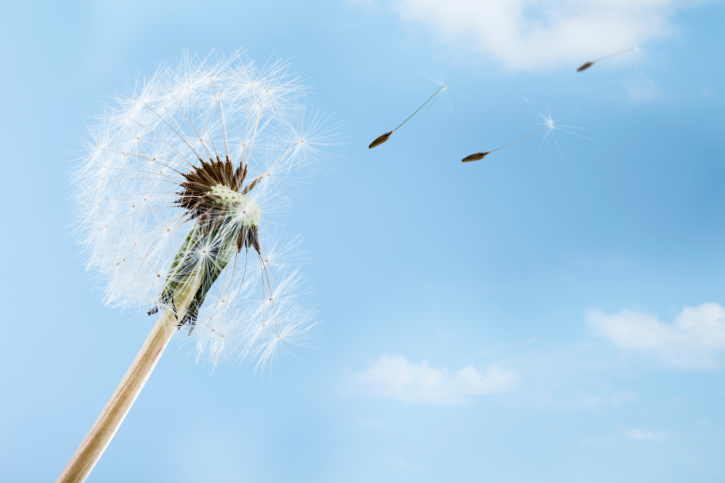 It’s a brand-new year. At the stroke of midnight on January 1, people around the world reflected on the year gone by and embraced new possibilities, goals, and resolved to make changes in their lives or to realize their dreams. People around the world embraced hope.
It’s a brand-new year. At the stroke of midnight on January 1, people around the world reflected on the year gone by and embraced new possibilities, goals, and resolved to make changes in their lives or to realize their dreams. People around the world embraced hope.
Hope. It’s a small word, but its meaning is far from small. Merriam-Webster defines hope as “the feeling of wanting something to happen and thinking that it could happen; a feeling that something good will happen or be true.” When I conducted an informal and unscientific Facebook survey asking “What does hope mean to you?” I received answers such as “something to look forward to,” “a dream of what could be,” “wide-open spaces to create,” “dreams,” and “possibility.”
Based on its definition and these responses, it seems as if hope is perceived and experienced as a positive force. As a therapist and as a person, I believe hope motivates us to achieve our goals, get through hard times, and support each other. Hope is a necessary component of the therapeutic process. People usually consult me because they want something different in their lives, such as changes in a relationship, a job, or changes within themselves. For those struggling with a relationship or wanting some kind of change in their lives, hope is crucial.
Exploring what people hold hope for often spurs rich conversations about their desires for their lives. In fact, hope is often one of the first things I inquire about, with questions such as “What do you hope for?” and “Is your current situation/relationship what you had hoped for?”
Hope opens doors and has the power to sustain us through the most difficult of times and circumstances. Having the ability to look forward keeps us moving forward, and hope plays an important role in this process.
So what is it about this intangible concept we call hope? How does hope work? One way to see the power of hope is to examine life without it.
Hope opens doors and has the power to sustain us through the most difficult of times and circumstances. Having the ability to look forward keeps us moving forward, and hope plays an important role in this process.
After the recent terror attacks in Paris, people woke up to a new day. The death and destruction left behind by the terrorists were still there, but gradually people began to go on. The world came together to support healing in Paris and as loved ones were laid to rest, people went back to work. Though changed forever for some, life moved forward. Hope played a key role in all of it.
Imagine if we didn’t believe we could have something different in our lives, if we held no hope that we could overcome tragic circumstances such as the Paris attacks, or if we couldn’t believe there is still good in the world. Holding on to purpose in life would be much more difficult without hope.
In my experience in the therapy room, when people have no hope, problems tend to control their destinies. When I can assist people in uncovering even a glimmer hope for something (anything!), the problem begins to lose power—and when the problem loses power, the person starts to determine his or her destiny on his/her terms. Often, hope serves as the catalyst to uncover forgotten strengths, to begin to see possibilities, and to create and sustain change. As a therapist, hope is often my “partner” in helping people overcome obstacles or loss and see their worlds through a different lens. I want hope floating around the therapy room as often as possible, just waiting to be discovered and embraced!
So, as we march into another year, embrace hope. Hope allows for possibilities. Hope motivates. Hope heals.
© Copyright 2016 GoodTherapy.org. All rights reserved. Permission to publish granted by Deanna Daniels, LMFT, Adjusting to Change / Life Transitions Topic Expert Contributor
The preceding article was solely written by the author named above. Any views and opinions expressed are not necessarily shared by GoodTherapy.org. Questions or concerns about the preceding article can be directed to the author or posted as a comment below.

 Change Is a Choice: Nurturing Neuroplasticity in Your Life
Change Is a Choice: Nurturing Neuroplasticity in Your Life 9 Signs It’s Time to Slow Down
9 Signs It’s Time to Slow Down Why Stopping Just Might Be Your Ticket to Moving Forward
Why Stopping Just Might Be Your Ticket to Moving Forward